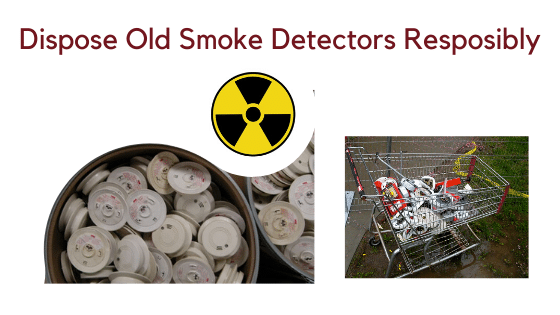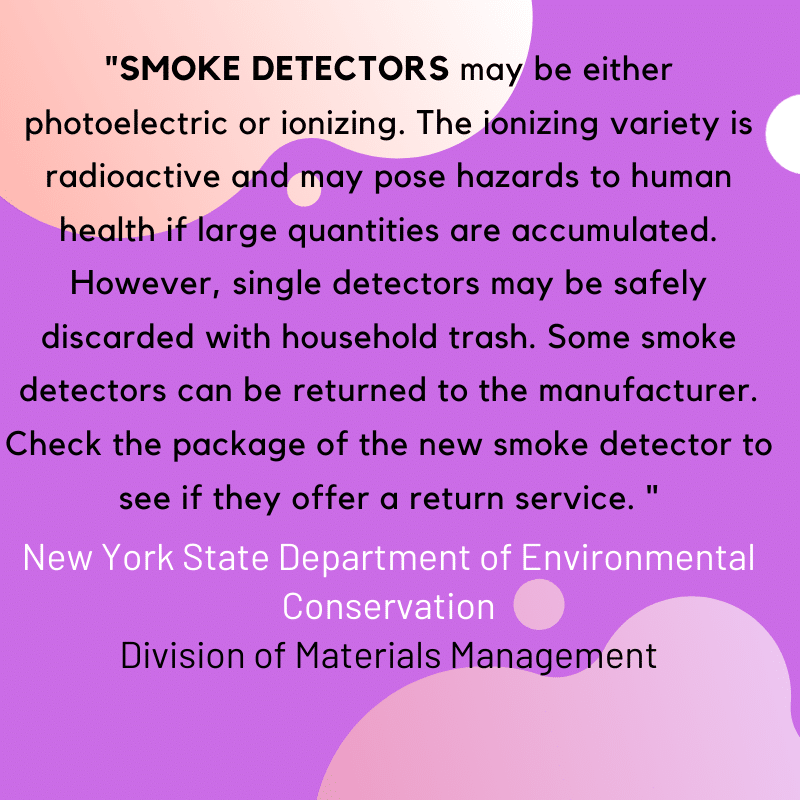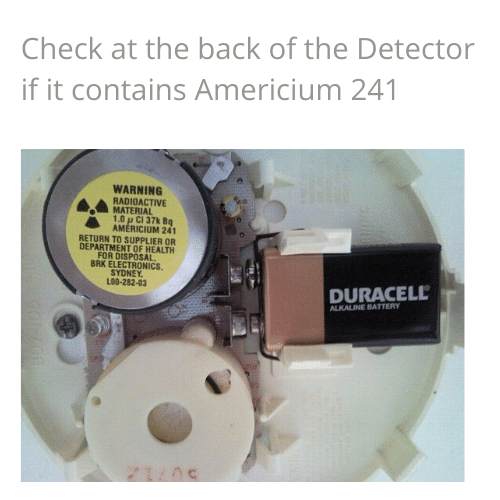A lot has been written on smoke detectors and the safety they generously give you and your family. But is it fair to say that there is less penned down when it comes to smoke detector disposal!

I know you may not need to do this as often, as majority of smoke alarms can last up to ten years! However, if you are part of the thousands that statistics show dispose their old or expired smoke detectors annually, then this article will shine some light to your dilemma.
As others are looking forward to throw their old or expired smoke alarms that have served to their end of life; you may be unlucky that you are disposing them because they have failed prematurely.
On the other hand you may be the proactive individual who is upgrading the technology to tap into the best that is in the market. Yes, you don’t have to wait for ten years to replace your smoke detectors.
Contents
New Technology in Smoke Detectors
The market already has smoke detector with voice technology that can talk to you to let you know the hazard and location.
Furthermore, today’s technology has made smoke and fire detection more accurate reducing on false alarms that are annoying.
So there is quite a significant change on this fire detection space, think of how they integrate with other home devices e.g. alexa, z wave devices, smart phone apps and the list continues.
It may sound as if disposing smoke detectors is as simple as removing them and dumping them in that trash bin. But hold on, you need to think through by considering the following.
The regulations may differ from state to state and it is important you keep touch with your local fire department. Generally and to start with, you should be knowing the type of smoke detectors that you want to dispose.

We are in an age that is environmentally conscious that wants to make sure everything is disposed off safely and in the most harmless way. Our society is no longer ignorant on hazardous wastes anymore.
Important to note is that some of the smoke detectors you are using contain radioactive elements. The most common is Americium-241. Hence, a lot of consumers may be unsure of how to dispose responsibility.
Americium-241
Americium-241 is an isotope of Americium.
Any substance with unstable nucleus in their atoms is classified as radioactive. That means it can release excessively high energy impromptu. You are likely to find americium-241 in ionization smoke detectors.
The working principle simply put, leverages on the fact that smoke interrupts the flow of the radioactive particles, hence triggering an alarm.
However, the amount of Americium-241 used in the smoke detectors is miniaturized. Consequently, the tiny levels are regarded as harmless to humans. Americium-241 is considered harmful when inhaled or ingested.
Tampering with the smoke detector whether it is functioning or not, is highly discouraged because of the health hazards it may pose especially if it contains the radioactive substance.
Photoelectric smoke detectors on the other hand do not contain radioactive elements. Contrary they use a ray of light that is interrupted in the chamber by smoke triggering an alarm.
How Do I tell if my Smoke Detector is RadioActive?
It is a requirement by law that any smoke detector containing any radioactive components have a warning on the label. The label will usually be behind the smoke detector.

If you therefore do not find any warning, you are safe to assume that it is radioactive free.
Comparatively, to identify an ionization smoke detector, check for a letter “I” or the name “ionization” at the label section.
How do I dispose My Smoke Detectors Near Me?
Some manufacturers have a plan to recycle their smoke detectors. Therefore, they should be your first point of contact. At the end of life, the detectors can be shipped back to the manufacturer for further action.
In situations where you are unable to return the expired, unwanted or faulty smoke alarms to the manufacturer, then following the local regulations on waste management and smoke detector disposal is okay.
Check for a hazardous collection point near you.
For example, you can trash them in a land fill. The radioactive elements are not considered harmful as explained earlier.
However, in cases where there are radioactive detectors installed as a prerequisite to allow waste, for instance some incinerators, the waste may be rejected.
Smoke Detectors Consist of Much More
Although we have put emphasis to the subject of radioactive elements present in some of the smoke detectors, that is not all the reason you need to recycle or dispose responsibly.
Smoke detectors are also made of the following materials:
The Casing
Mostly made of plastic that takes many years to degrade. A lot of plastics have made their way into the seas. It is estimated that about 8 million tonnes of plastic end up in the world oceans each year!
We cannot exhaust the detriments these delinquencies cause on the general ecological balance. Scientists have found plastic elements in fish.
Take note that you do not dismantle the chamber for ionization smoke detectors otherwise you may expose the Americium-241!
Electronics
In the same way it is important to recycle electronics e.g. computers, TV, radio, phones etc, so it is for smoke detectors. The circuit may contain copper and gold that can be recycled and reused.
Batteries
For majority of smoke detectors, a battery is present. Either as a backup or as the sole source of power for the smoke detector.
Batteries should also be disposed cautiously. If just placed in a trash, the positive and negative terminals may come in contact with other batteries or metal objects. This in turn may cause excessive heating that can result in a fire. Hence, batteries can be a fire hazard.
It is advisable to tape the terminals with an electrical tape or masking tape before throwing them away. In fact, some states prohibit dumping batteries in the general trash.
Check with your state if they require you to dispose battery waste in dedicated places. Given these points, always remove batteries from the smoke detectors before you dispose.
Batteries are also known to contain harmful metals that can compromise the lives of humans and animals.
In conclusion, we congratulate you for being an environmentally conscious member of our society!